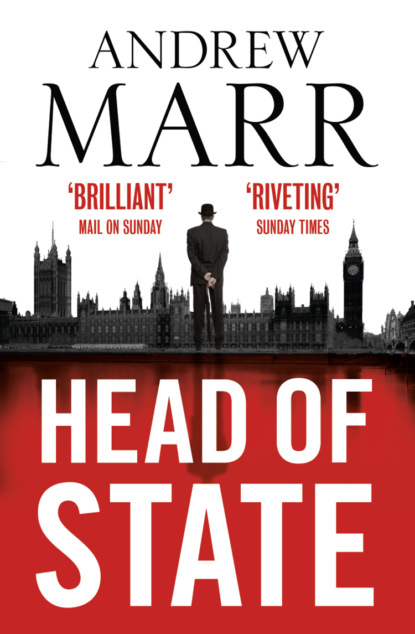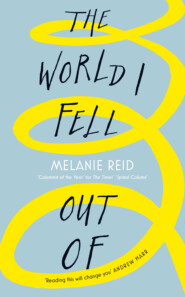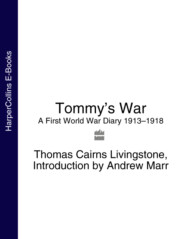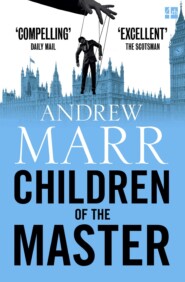По всем вопросам обращайтесь на: info@litportal.ru
(©) 2003-2024.
✖
Head of State: The Bestselling Brexit Thriller
Автор
Год написания книги
2018
Настройки чтения
Размер шрифта
Высота строк
Поля
‘Fuck?’
‘Fu … fu … fu …’
But by now a small smile was creeping across Ken Cooper’s face. He started to laugh. Eddie Fitt, the news editor, was laughing too. The pair had known each other since they had both started out as down-table subs on the Newcastle Chronicle. Fitt had made it to London first, and found himself hired by the great Harry Evans, before hopping over to little Donald Trelford’s Observer. By then he was ‘out’ in the great gay city, and having fun for the first time in his cramped, nervous life. Cooper had come down a year later, stayed on Fitt’s sofa, had his eyes opened about various people in the public eye, and worked his way through the Murdoch papers before the flit to Wapping, staying on after they’d made the move, surviving the siege and surviving Charlie Wilson, the Glaswegian editor he partly modelled himself on, who had called him ‘Fingers’. (‘Why Fingers, by the way, Mr Wilson?’ ‘Because that’s all you’re fucking hanging on by, sonny.’)
In time he’d tired of life in Andrew Neil’s considerable and growing shadow, and had migrated to the Mail. There it was said that the fabled Paul Dacre called him a cunt ‘more affectionately than he had ever called anyone a cunt before’. He’d had enough bad relationships and gabby colleagues, and a salty enough tongue, to be a regular in Private Eye’s ‘Street of Shame’ column, but his experiment in marriage had turned him darker. It left him with a slouching, angry son and explosive weekly confrontations with his former spouse, who was then working for the rival Correspondent. When he got the call to go to the Courier, he’d rung Eddie Fitt, whom he’d long since outpaced, and asked him to come aboard (‘Poisoned fucking chalice, Eddie. Just your cup of tea’).
‘But Jesus, Eddie,’ continued Cooper, who had calmed down a bit by now. ‘What the fuck? Where the fuck is fucking McBryde?’
‘Dunno, boss. It’s very odd. He’s a bloody good reporter, but a bloody messed-up guy. I’ve left dozens of messages, voice and text. I’ve told him the headless corpse is our splash whatever happens, whatever he gets. I’ve thrown my bread. But from across the great black pond of Soho dissipation there comes back no response, no echo at all.’
‘OK. Well … he’ll show eventually. Meanwhile, here’s this to be getting on with.’ Cooper slung across the heavily marked and annotated wad of newspapers he’d been working on during his car ride to the office. ‘Tell McBryde to call me as soon as he turns up. And ask Carole, would you, to cancel my lunch with Lord fucking Fauntleroy. No reason. Oh yes, and get Scadding to come to my office pronto.’
Lucy Scadding, the political editor, arrived with her deputy in seconds. She’d been loitering outside Cooper’s door for nearly an hour, her mobile clamped to her head, nodding and grunting monosyllables. Lucy wasn’t a fence-sitter – she strove to keep words like ‘may’, ‘might’, ‘is said to be’ and ‘rumoured’ out of her copy. She knew the golden rule: any headline with a question mark at the end of it deserves the answer ‘Nah, not really.’ She also knew all too well that over the next few days she would either establish herself among the wiser heads in the Westminster lobby, as one of those who had called the referendum right … or she’d fail. No pressure, then. She’d become a bit of a favourite of the prime minister, mainly because she read the political biographies, and could quote them back at him. (Most political reporters have virtually no understanding of or interest in politics; serious politicians adore the few who do.)
‘Hello, Ken. How long have we got? Things are getting interesting over at Number 10.’
‘No more than twenty minutes, Lucy. The country may be about to commit political fucking suicide, but I’m running a newspaper on life support, and I’ve got to go and grovel to some fucking marketing meerkats before conference. So keep it clear and keep it snappy.’
Lucy Scadding sat down, though her editor was standing at his desk, and flipped open her iPad, dabbing a finger on it until she found what she was looking for.
‘Well, first off, general sit-rep. Everyone still expects a “Yes” to Europe, although there are signs that the gap’s narrowing. Ipsos Mori, YouGov, Populus – different methodologies, but all pretty much in the same place. The City boys say gilts are holding up well, and the top Footsies are all bobbing on a rising tide. We’re expecting the PM to do a final regional tour, and a big presser either today or tomorrow. We think he’ll choose the Birmingham area, because it’s very tight there. I’ve been talking to the usual suspects at Number 10 this morning, and the mood there’s pretty chipper. Some of the inner circle seem a bit frantic, though. Something’s up, I know it is. I just can’t put my finger on it.
‘On the other side, Olivia Kite’s people are insisting it’s still all to play for. They say they’re going to be unveiling a few renegade Tories and some very senior Labour people later today. Again, I’m expecting them to do it in Birmingham. But I’m not convinced it will be enough. I think it’s time for a big, bold prediction on the front page – we’re staying in.’
‘Whoa, girl. Steady. Let’s not cross the fucking finishing line before the nags are out of the fucking boxes,’ said Cooper. ‘It’s playing out more or less as we predicted. The PM out on the stump, and Olivia just a little too far behind. But you’re right, it does look like game over. So what happens afterwards? We’ll have a reshuffle almost immediately, eh, Lucy? He can’t keep the rebels in the cabinet after what they’ve been saying over the past few weeks. Get ahead of the fucking game, girl. I want a down-page piece giving me the new cabinet.’
‘I’m not so sure there’ll be a reshuffle. After his deal with the Germans, and assuming he pulls this off, he’ll go down as the most successful PM since Thatcher. He’ll be a hero for a few weeks at least, and he’ll be able to pick any international job he wants in due course – but he’ll still be party leader, and he can’t expect to win a general election with the party in splinters. He’ll want the maximum party unity he can salvage out of this smash-up. He’ll try to settle the succession – he won’t be able to, but he’ll try – and bind the wounds. So I think he’ll be very cautious in victory. He’s got a tight little cabal of good people around him, but I expect he’ll resign, probably by the end of the year.’
‘Well, fucking fine for him. Fucking good for us too. We’ll have called it right anyway.’
Cooper meant, of course, that he himself had called it right. The proprietor’s increasingly obstreperous son was a convinced ‘patriot’ and ‘No European tyranny’ man. The proprietor had agonised for weeks about the line the paper had chosen to take, and the pressure had been unpleasant. Cooper had regarded himself as a friend of the prime minister’s ever since his early days in Parliament. They ate the odd meal together even now. So he had gone with his man, and with the PM’s utter conviction that the referendum had to be won – and would be won. His veteran political columnist, a frog-eyed intellectual, took the opposite line, as did half the newsroom, mainly the younger ones.
Once, Cooper would simply have sacked the columnist and intimidated the others. He had always made a point of the Courier’s tradition of dissent, holding out against the Cameron government’s new press censorship law for two long years. There had even been talk of jail. But with the owner not knowing what to think, and his son on the warpath, sales weak, and fucking bloggers and other assorted digital wankers making so much of the running, Ken Cooper’s old certainties had long gone. He also believed in creative tension between his journalists, and had just about held the editorial line. Lucy Scadding had become an important ally. Perhaps, he reflected briefly, that was why she’d taken a seat on his office sofa so comfortably. But the frog-eyed columnist was now standing at the door, and he pitched in.
‘The thing is, Mr Cooper, it’s not quite adding up. All respect to Lucy, I agree that something’s up at Number 10. I think it’s the latest polling figures that are making them uneasy. All that cash that’s been slung into the “Yes” campaign seems to have moved things very little – if at all. There are signs that it’s getting too close for anyone to assume anything. We haven’t even got a clue how many people are going to come out and actually vote. So I really don’t see why everyone seems so confident.’
Lucy Scadding stopped playing with her mobile phone, and started to talk Ken Cooper’s language. ‘It’s really down to the PM. They – we – still believe in the bugger. He’s a shit, and he’s fucked up so many times – but he’s our shit, and he’s got that smile that makes people want to smile back. And he’s never lost an important fight. Not one. He’s leaving it a bit to the last minute, though. I can’t think why he didn’t do the Andy Marr show yesterday. Barney Jones was beside himself. I’m guessing he’s got something special up his sleeve.’
‘Most likely. Will he write us that fucking piece, do you think?’
Lucy tapped her mobile again. ‘Yes, yes. I got a reply back about half an hour ago. He says it’ll be mostly by “the team”, but that he’ll personalise it for an old friend like you.’
Good, thought Cooper. There are some places where I still count. Leaving Lucy Scadding and frog-eyes behind him, he bounced out into the newsroom – which, as always, struck him as sadly quiet compared to the old days. Half the people there were poor, benighted ‘media studies’ graduates working for nothing. What a fucking con, thought Cooper. All those student loans piled up to keep obsolete hacks-turned-professors in work, on the hollow promise that the deluded kids would get gainful work. Well, there was no gainful fucking work left. Maybe when they finally fired him he’d tour the universities with a placard: ‘Media Studies? Starve in Fucking Style.’ They’d probably arrest him. That would be a fucking story.
At the newsdesk Eddie Fitt was on the phone. He saw Cooper and shook his head. Still no McBryde.
‘Fuck, fuck and fuckety fuck,’ muttered Cooper. They had been a pretty unimaginative lot, he admitted to himself, those Anglo-Saxons.
Conversation Piece (#ulink_c740cfd9-cb2c-5b30-ada6-aacd5aeaa0c2)
Two figures lay in adjoining frosty cubicles, awaiting the folding steel tables on small rubber wheels. One was the headless and handless body of the sixty-ish man recovered from the Thames, now cleaned of mud and slime. The other was the broken but otherwise intact body of the twenty-eight-year-old newspaper reporter Lucien McBryde, by now also naked. That the latter had been given the task of investigating the former was something nobody present could know.
The mortuary was a long, low building with a high brick wall and an electric steel gate, lacking any sign or distinguishing number. Not far from the fashionable Chelsea Harbour, and opposite a bland international hotel, it was the designated holding place for central London’s sufferers of violent death. Here had come the torn victims of the 7/7 bombings, the possibly murdered, the certainly murdered, the suicides, and the children who had killed and then been killed in the gang wars of Brixton and Hammersmith.
Locals knew about the place, and noticed the unmarked vans and ambulances that regularly passed through its gates; but to most Londoners it was a blank, a built-up vacancy in an anonymous triangle of lost real estate. Google Maps gave it no description; on Streetview there was only a blurred strip of brick wall and a metal gate. It was, however prime development land, and developers had had their eyes on the site for years. As one local estate agent put it, ‘Leaving a bit of juicy riverfront like that to cadavers rather than living punters is pure insanity. It isn’t English.’
On the other side of the wall, once a call had opened the gate, there was generous space for parking and then a small office – velour chairs, a dusty rubber plant, two ancient computers, a calendar with pictures of fat naked women – staffed by an unshaven, exhausted-looking man and a tired secretary. Behind it, corridors with photographs of English seaside towns led to heavy doors and thick plastic curtains. Beyond these, the atmosphere under the strip lights was both chilly and stuffy, with the vinegar smell of formaldehyde not quite hiding something sweeter. Porters moved the bodies from cold storage to the cement-floored rooms where the autopsies took place, and then sluiced down the fluids after the coroners, the police and the pathologists had done their jobs and left.
What kind of people sought such work? Not bad people, necessarily. Rather, those who combined a yearning for quiet financial security with flickers of a gothic sensibility. Graveyard humour didn’t stop with Shakespeare. Famous corpses sometimes found themselves decorated with lipstick or stick-on noses before the mortuary closed for the night. At Christmas, a certain amount of inappropriate tinsel was not unknown. There had been one near-scandal, when relatives from the Indian subcontinent turned up unexpectedly to find a steel tycoon dressed in women’s stockings. Lucien McBryde’s slender and remarkably long penis had been the source of much comment today; but he had not been tampered with.
Had the Thames body and the investigative journalist been able to, they would surely have turned and gaped at one another, surprised by their clammy propinquity – wondering who would show up next, disturbed by the thought of what the white-trousered menials might leave as a goodnight gift. But as one of them had a broken neck and the other was missing his head, they could exchange no such look.
Constitutional Monarchy (#ulink_5f8b5bff-684f-5255-9cf0-db6c39394062)
The chief whip, Ronnie Ashe, was experiencing something he hadn’t felt since he had been a small boy at his first preparatory school. He felt inadequate. This was not surprising. He had been summoned to Buckingham Palace by the new king’s private secretary half an hour earlier, to explain why the king’s first minister was apparently too busy to attend his regular audience with His Majesty – moved to Monday mornings at the beginning of the new reign. And the king was not amused.
Ronnie had decided to walk across St James’s Park in order to prepare himself – it would be almost as quick as clambering into the official Jaguar and being driven, he’d thought – but he had underestimated the time it would take, and arrived late. His Majesty was not amused about that either.
Ronnie was taken by an equerry through the courtyard and up a surprisingly small staircase to the king’s private study. There a portrait of the late queen dominated the wall behind the desk, while the rest of the room was filled with the king’s own watercolours of Scotland, India and Windsor. A pair of green-silk-covered armchairs had been set out in preparation for the meeting, a couple of yards apart. Ronnie bowed, beamed, but remained standing until the king waved an irritated hand towards one of them. Had the prime minister been there, a footman would have been waiting with a glass of his favourite Talisker malt whisky. For Ronnie, there was not even the offer of a cup of tea.
Yet Ronnie Ashe and His Majesty were acquainted. Early in his parliamentary career, Ashe, who’d made some real money by almost doubling the size of his father’s agricultural-equipment business, had been approached to become a trustee of one of the then prince’s pet charities. Ronnie was enough of a man of the world to understand that ‘trustee’ was a short way of saying ‘Pay up, or find people who can.’ He did a bit of both, was invited to a couple of what he told his wife were ‘snob lunches’, and eventually they both spent a weekend at the prince’s country house. With his engineering background, Ronnie often had some useful tips to pass on for royal speeches, and he’d spent a few days over a few months explaining how Parliament really worked to the young princes. A regular at Cheltenham, Lingfield, Epsom and Ascot, as well as a genial, attentive listener, he was the kind of man the Windsors found easy to have in attendance.
But, like many who had found themselves in this position, Ronnie Ashe had once made the mistake of ‘presuming’ – of being just a little too friendly – and had immediately experienced the famous Windsor chill. He had felt knocked off-balance, like a schoolboy caught doing something obscurely shameful, and surprisingly upset.
The prime minister, who was twenty years his senior, had put him right. ‘The secret of monarchy? Fast exits, Ronnie. Out goes the hand. On comes the smile. You feel like a million dollars. Then you suddenly realise they’ve skedaddled, moved down the line. Or you’re having a conversation and HM goes, “Really? How fascinating? Now why has nobody ever told me that?” You make the mistake of jabbering away some more, and then you notice a glaze behind the eyes. A fog has descended. I’ve seen it a million times – ambassadors and actors, cabinet ministers and editors, suddenly going “How did that happen? Where did they go?” It’s how it has to be, old man. No idling. No getting too close. And of course it’s worse for those who are a little closer. So if you want to keep being invited, if you want to sit on those boards, maybe get a Victorian Order one of these days, you have to play the game, and understand their rules. Don’t presume. Don’t dream of being a friend. Remember, always and forever: quick exits.’
Ronnie Ashe had remembered, and learned, and so in time he had been asked back. He’d had an eat-and-sleep at Windsor. He’d accompanied the king to see children’s clubs, and he’d managed to get a royal opening for the new business college in his constituency. He’d made jokes and heard kingly laughter and laughed at kingly jokes – which actually weren’t bad, though they often made you feel sorry for the man.
Вы ознакомились с фрагментом книги.
Приобретайте полный текст книги у нашего партнера:
Приобретайте полный текст книги у нашего партнера:









